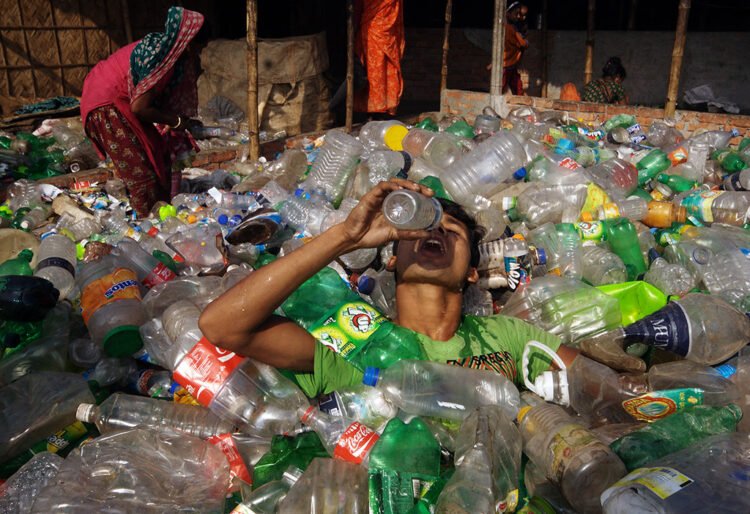The Covid-19 has brought in a new level of perspective and dimension in the area of solid waste management. The fragility of the problem of waste brings in the notion that disease and waste mismanagement goes hand in hand in India today. The covid has infact brought in a completely different angle to this problem.
As a matter of reality solid waste management industry in India is great flux with a huge baggage of failure and a crisis of identity with future looking quite an antithesis of progress and profit making entrepreneur ship. What is the outlook which holds the progress of this sector and how to really take this sector to the next level of development and attraction of enterprise who matter in India?
Well looking at progressive countries like USA, Europe especially Sweden UK France Italy and even Israel and China solid waste management seems to be in cusp of growth and profit making by enterprises. The stories of success are plenty to be read in the google library and we need to just to do little homework to find these case studies of brilliance of the west.
Without really making any conjecture on the Indian solid waste situations let get into the fact and some reality bites. Well India has more than 4000 town and cities and total municipal waste collected per day is in tune of more than 1.4 lac tons per day out of this total waste is only approx. 25000 tons per day processed and the rest goes to the landfill. Simply this is way that waste is dealt in India. The problem lies in the accumulation of this waste and occupying a major portions of our cities.
Covid-19 has clearly brought in an impact unprecedented in history of humanity and underplaying any factor for this huge pandemic would be a chimera .Relationship of increasing managing the waste in India has been a question which has been undergoing since year 2000 i.e. 20 years.
The relationship of managing the waste has been quite deplorable for the 20 years since the relationship of increasing waste in cities has also led to increase in the number of disease in these places.
The kabbari community handles more than 80 percent of waste collection and transportation in India making it one of the most vulnerable communities in relation to transmission of disease within its own ecology and outside too
How the disease does gets transmitted through the waste value chain in India. Primarily there three factors in play when you look at the way disease moves in this community.
First aspect is the door to door collections. The door to door collections is done by Jagirdars in the Kabbadi community who control the wards in many states like Madhya Pradesh Uttar Pradesh Punjab and many parts of North and Eastern India. They are traditional collectors of waste and have huge leverage in the waste value chain. Everyone in their family including children are part of this collection mechanism.
They are continuously collecting waste from various sectors like household hotels hospitals malls and large organizations and bulk generators. Almost 80 percent of the total waste collected in India is controlled by this community.
Any spread of Covid-19 will have a sporadic impact on the way community spread can take place through this agency of collection and transportation of solid waste
Second once the waste gets touched through these community it has to be looked in from the way of living within these communities. Most Kabbari community live in closed ghettos in cities like Delhi, Mumbai, Bangalore, Chennai and other cities of India. They are in the high risk of contamination of disease especially Covid-19 which is highly transferable as we are seeing in many parts of the country now.
Third is the mixing of biomedical waste with solid waste in many wards and hospitals is lethal and becomes very dangerous for the kabbari community. We cannot overlook the fact that they are the largest collectors of biomedical waste. We are witnessing the increase of covid in the medical community like doctors’ nurses’ sweepers and even the other staffs in the hospital.
Albeit the Government through the rules 2016 has clearly stated that biomedical waste segregation will be done differently and stored in colour coded containers separately following the provisions of biomedical waste rule 1998 and then amended in 2011 and 2016.However a pandemic like Covid-19 has clearly washed off some of the demarcation for the collection community and they are increasingly becoming prone to contamination from the left over and waste of biology of humans.
Last but not the least is the the landfill and dumpsites that are accumulating in India have now become very big and it is estimated that they are one of the principal agency of toxic gas release in the environment. Landfill also generate toxic soup known as leachate which is formed when waste is subjected to biological and physiochemical transformations and can lead to huge spread of diseases.
The health problems related to various emission from landfill include PM 10 exposure breathing problems mucus productions asthma and elevated cardiovascular risks. We need to keep in mind that Covid-19 is respiratory related disease that primarily effects the breath and in its more severe form causes damage to breathing and ultimately death of the patient.
The coming year India has to particularly ensure that landfills are bioremediated and fully sanitized so that all disease forms arising from it does not harm the community that works there and ensures upkeep ie the kabariwala.
Sujay Jha, Director, Hari Bhari Recyclable Private Limited





























